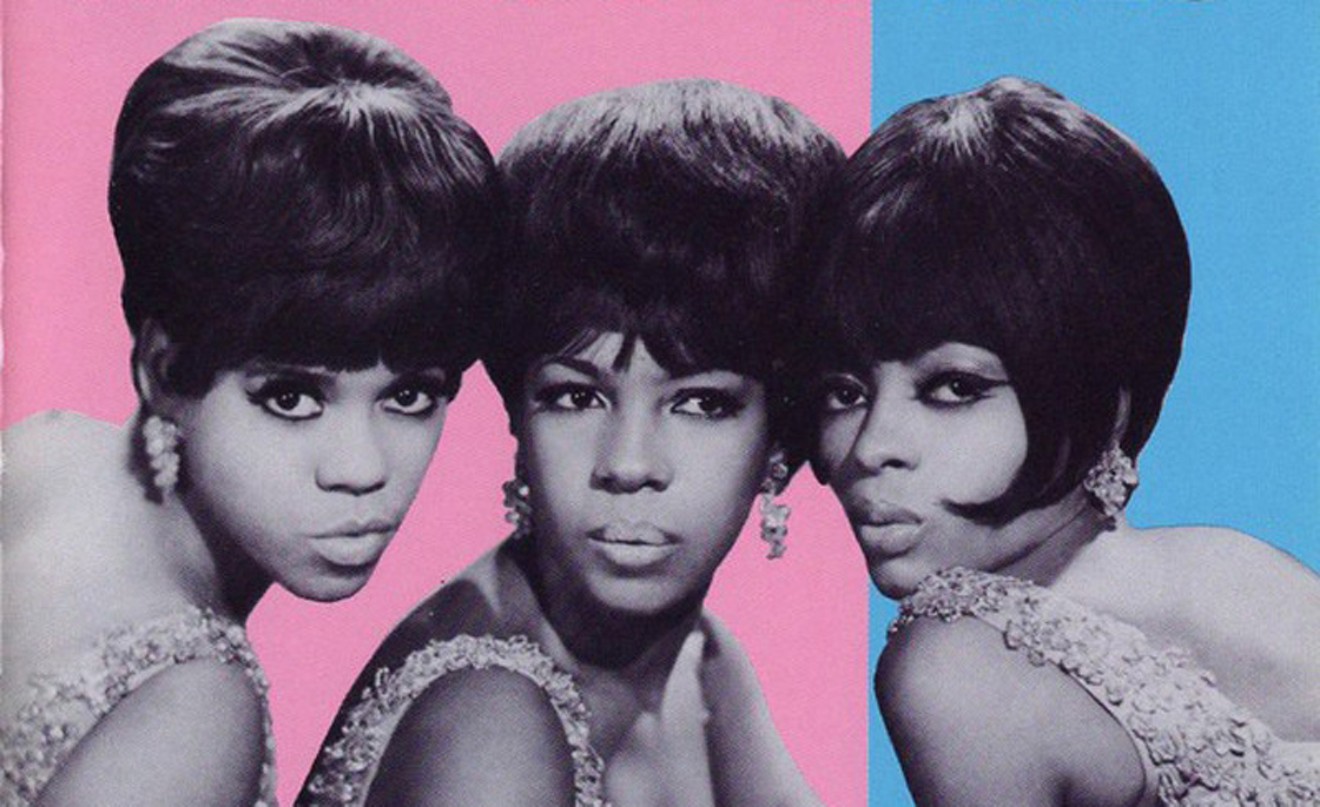They were responsible for performing some of the most era-defining pop hits of the early and mid 1960s.
Time capsule songs of romantic longing, tough talk, and teen angst on tracks like “He’s a Rebel,” “Stop! In the Name of Love,” “My Boyfriend’s Back,” “Leader of the Pack,” “Be My Baby,” “Chapel of Love,” “One Fine Day,” “Da Doo Ron Ron,” and so many more. It was the era of Girl Groups.
Music historians have often focused on the contributions of songwriting teams (including King & Goffin, Mann & Weil, and Barry & Greenwich), or the producers/Svengalis (Berry Gordy, Phil Spector, George “Shadow" Morton) involved in the end product.
And while some names did jump out into greater familiarity (Diana Ross, Ronnie Spector, Darlene Love—whose lead vocal went uncredited on “He’s a Rebel” and “He’s Sure the Boy I Love”), Girl Group members were mostly anonymous.
To the average listener, these were young (and mostly Black) interchangeable young ladies shimmying onstage making hand gestures. Though discerning fans could pick out Martha Reeves versus Arlene Smith versus Mary Weiss. Some were recorded as young as age 12 or 13, too young to drive—much less experience heartbreak or (in some cases) even an actual first kiss.
That changes with the weighty and impressive oral history from authors Emily Sieu Leibowitz and Laura Flam, and whose own title recalls perhaps the most raw and aching Girl Group hit, But Will You Love Me Tomorrow?: An Oral History of the '60s Girl Groups (448 pp., $31, Hachette Books).
It contains 300+ hours of new interviews with 100+ subjects done just for this book, along with some archival materials from those who have passed or didn’t participate. Reflections and memories come from members of groups including the Chantels, Shirelles, Cookies, Blossoms, Ronettes, Marvelettes, Vandellas, Chiffons, Shangri-Las, Crystals, LaBelle, and Dixie Cups.
Leibowitz and Flam also include a number of songwriters, managers, executives, backing musicians, relatives and even famous fans like Billy Joel and Whoopi Goldberg.
Many tell similar stories of being taken advantage of by (usually) older white male executives in terms of contracts, royalties, and monies—things these mostly teenagers or their parents couldn’t have possibly known about then.
Much less predicted how these songs would be sold and played for decades and decades, or be heard in big movies and TV shows. Though this kind of taking advantage of situation was common many performers of the era regardless of race or gender.
Many of the Black singers also talk about the harrowing and shocking instances or racial hatred and prejudice they faced on the road in the early ‘60s, most intense (not surprisingly) in the South.
Unable to stay at or eat at the hotels and restaurants their white package tourmates could, some had to settle for eating sardines out of a can in the bus or—in one instance with the Bobbettes—bunk down in a Black-owned funeral parlor with occupied and open caskets nearby. Since no hotel would allow them to stay there.
More than once a bus was stopped or boarded by hooded members of law enforcement or even the Ku Klux Klan, ensuring that the vehicle would not be in their town a minute longer than necessary.
For a few years, the Girl Group sound ruled the airwaves and television screens on any number of variety shows, but not all was as upbeat as some of the songs.
Flam and Liebowitz don’t shy away from any of the less-than-savory and downright abusive and unfair things suffered by these singers. Whether it’s being blatantly cheated out of record royalties or fees for live shows, problems with booze, drugs, and physical abuse, or their own infighting, the tales can turn tragic (especially for Florence Ballard of the Supremes and Estelle Bennett of the Ronettes).
And while their voices blended seamlessly on record, some of the Girl Group members still hold grudges against each other for perceived slights that could have come from the 1960s or the 2010s.
Many things would chase the Girl Group sound off the charts: The British Invasion, preference for self-contained rock bands who wrote their own material, experimentation in music, and the rise of FM radio. Amusingly, members of both the Beatles and Rolling Stones would try to horn-dog the Ronettes, with varying levels of entanglement.
The move of Motown from Detroit to California, and the sometimes shady business practices of Berry Gordy, are discussed. Likewise the megalomaniacal Phil Spector and the damage he caused to both Darlene Love and Ronnie Spector on several levels.
But the music these young ladies made continues to be among the most popular of “oldies.” And while they usually didn’t write, produce, or play instruments on these records, it’s them who bring the music to life and vitality, whether blasted out through the crappiest of car radios or the most expensive of home stereo systems.
There have been books on women in pop music and Girl Groups before. Notably Gerri Hershey’s Nowhere to Run and Alan Betrock’s Girl Groups: The Story of a Sound, along with any given number of chapters within other books. But But Will You Love Me Tomorrow? gives the most—and most open—forum for these overlooked or “lost” singers themselves to tell their own story.
Support Us
Houston's independent source of
local news and culture
account
- Welcome,
Insider - Login
- My Account
- My Newsletters
- Contribute
- Contact Us
- Sign out
New Book Finally Gives the "Girls" of '60s Girl Groups Their Own Say
Bob Ruggiero September 5, 2023 4:00AM

The Supremes were the most commercially-successful and omnipresent of the Girl Groups: Florence Ballard, Mary Wilson and Diana Ross
Record cover detail
[
{
"name": "Related Stories / Support Us Combo",
"component": "11591218",
"insertPoint": "4",
"requiredCountToDisplay": "4"
},{
"name": "Air - Billboard - Inline Content",
"component": "11591214",
"insertPoint": "2/3",
"requiredCountToDisplay": "7"
},{
"name": "R1 - Beta - Mobile Only",
"component": "12287027",
"insertPoint": "8",
"requiredCountToDisplay": "8"
},{
"name": "Air - MediumRectangle - Inline Content - Mobile Display Size 2",
"component": "11591215",
"insertPoint": "12",
"requiredCountToDisplay": "12"
},{
"name": "Air - MediumRectangle - Inline Content - Mobile Display Size 2",
"component": "11591215",
"insertPoint": "4th",
"startingPoint": "16",
"requiredCountToDisplay": "12"
}
]
KEEP THE HOUSTON PRESS FREE...
Since we started the Houston Press, it has been defined as the free, independent voice of Houston, and we'd like to keep it that way. With local media under siege, it's more important than ever for us to rally support behind funding our local journalism. You can help by participating in our "I Support" program, allowing us to keep offering readers access to our incisive coverage of local news, food and culture with no paywalls.
Bob Ruggiero has been writing about music, books, visual arts and entertainment for the Houston Press since 1997, with an emphasis on classic rock. He used to have an incredible and luxurious mullet in college as well. He is the author of the band biography Slippin’ Out of Darkness: The Story of WAR.
Contact:
Bob Ruggiero
Trending Music
- Let the Bickering Begin: Author Unleashes a Manifesto on Killing Classic Rock
- Nicki Minaj Brings 50 Cent, Kirko Bangz, BeatKing To Houston’s Pink Friday 2 World Tour
- Top 10 Butt-Rock Bands of All Time
-
Sponsored Content From: [%sponsoredBy%]
[%title%]

Don't Miss Out
SIGN UP for the latest
Music
news, free stuff and more!
Become a member to support the independent voice of Houston
and help keep the future of the Houston Press FREE
Use of this website constitutes acceptance of our
terms of use,
our cookies policy, and our
privacy policy
The Houston Press may earn a portion of sales from products & services purchased through links on our site from our
affiliate partners.
©2024
Houston Press, LP. All rights reserved.






